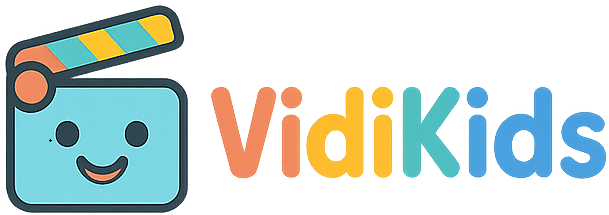Creating a calm and loving home routine for children doesn’t require elaborate schedules or expensive programs—just intention, consistency, and a few thoughtful habits. From predictable wake-up times to bedtime rituals, these routines provide a supportive framework that helps children feel secure, understood, and capable. Let’s explore how small daily practices can foster emotional well-being, connection, and independence in children aged 3 to 8.

The Power of Predictability
Routines matter because they give children a sense of safety and control. When children know what to expect, they're less anxious and more cooperative. Research confirms that consistent daily routines support healthy emotional development, helping kids build self-regulation skills and feel calmer and more confident mbbch.com.
Predictability also reduces power struggles. Instead of frequent reminders, children simply follow what comes next. This cooperative dynamic makes daily life smoother and more joyful for the whole family Kids Mental Health FoundationPeake Academy.
1. Gently Start the Morning
Avoid rushing and frustration by waking your child calmly. Softly say their name, open blinds to let natural light in, and begin the day with gentle conversation rather than commands. Research emphasizes setting a positive tone in the first hour—minimizing criticism and focusing on warmth creates emotional safety for the day ahead The Times of India+1The Times of India+1.
2. Keep Consistent Wake-Up and Bed Times
Set matching times for waking up and going to bed—even on weekends. This supports circadian rhythms, improves sleep quality, and strengthens the structure that children rely on emotionally Peake Academythemom.co.
A calm bedtime routine—like bath, brushing teeth, storytime, and a hug—signals safety and closure, and supports restful sleep Kids Mental Health Foundationwoombie.com.
3. Build Visual Schedules
Draw or print out a simple chart with images and text: wake, brush teeth, eat breakfast, play, read, etc. Place it where your child can see it. Studies show that when children understand the structure, they feel a sense of achievement and independence. Plus, the chart reduces daily confusion The Incremental Mama+15Kids Mental Health Foundation+15Teething to Tantrums+15.
4. Include Calm Moments During the Day
Quiet times—like reading, drawing, or a mindfulness exercise—help children reset during busy days. These short pauses promote emotional regulation and focus. Programs like the Kids Mental Health Foundation highlight the benefits of added calm time in routines Peake Academy+2Kids Mental Health Foundation+2cbtprofessionals.com.au+2.
5. Offer Age-Appropriate Choices
Daily decisions build confidence. Offer two or three simple options—“Do you want a banana or some yogurt?” or “Story time first or 5 minutes of play?” Involving children gives them small victories and a sense of agency.
6. Connect at Mealtimes
Shared meals are more than eating—they're moments for connection. Ask what they enjoyed about the day or something new they learned. This regular habit fosters emotional bonding and communication skills.
7. Encourage Short Routines Before Bed
Evenings can be rushed, but a simple flow—quiet play, brushing, bedtime story, and hugs—builds consistency. This helps children transition smoothly to sleep and feel emotionally secure at night Kids Mental Health Foundationwoombie.com.
8. Practice Gentle Emotional Check-Ins
Throughout the day, pause and ask, “How are you feeling?” or “Is there something on your mind?” Validating emotions helps children build emotional awareness and teaches that it’s safe to share feelings Kids Mental Health Foundationwoombie.com.
9. Use Predictable Transitions
Remind your child before transitions: “In 5 minutes, we’ll clean up and have dinner.” This forewarning supports smooth behavior and cooperation between tasks.
10. End the Day with Affirmation
Finish the day with positive words: “You did great today,” “I love spending time with you,” or “Thank you for helping.” Small affirmations help children feel seen, appreciated, and loved before drifting off to sleep.
Building a Routine that Grows with Your Child
-
Start small: Implement one or two habits first, like consistent meals and bedtime.
-
Be flexible: Life happens. It’s okay to adjust the routine during special events or family needs.
-
Invite involvement: Let older kids help plan: “Do you want to pick dinner tonight?” This strengthens responsibility.
-
Review and adapt: As your child grows, tweak the schedule—less nap time, more evening reading, etc.
Benefits You’ll Notice
-
Calmer mornings and nights with less resistance
-
Fewer tantrums and smoother transitions
-
Time spent together intentionally, which boosts bonding
-
Greater emotional resilience and self-regulation in your child
Structured yet flexible routines lay the groundwork for lifelong emotional health and independence.
Final Thoughts
Creating a calm and loving home routine doesn’t have to be overwhelming. The goal isn’t perfection, but presence. Each small habit—a mid-morning break, a bedtime stretch, or a nightly affirmation—builds a world where children feel safe, valued, and equipped to manage their grown-up feelings.
Start with one habit and grow from there. With consistency, kindness, and shared intention, your daily routine can become a true foundation for a child’s confidence, joy, and well-being.
; ?>







